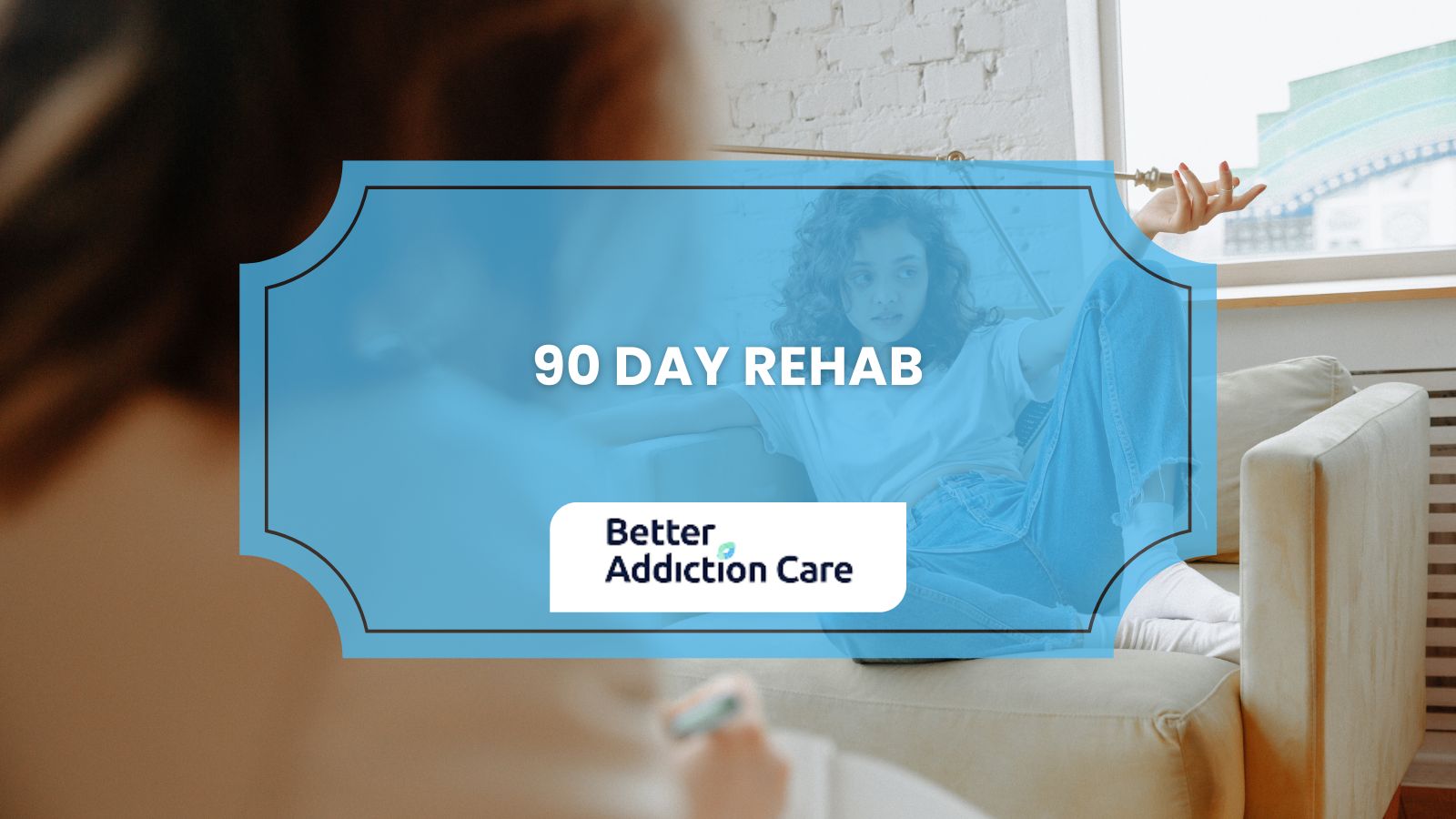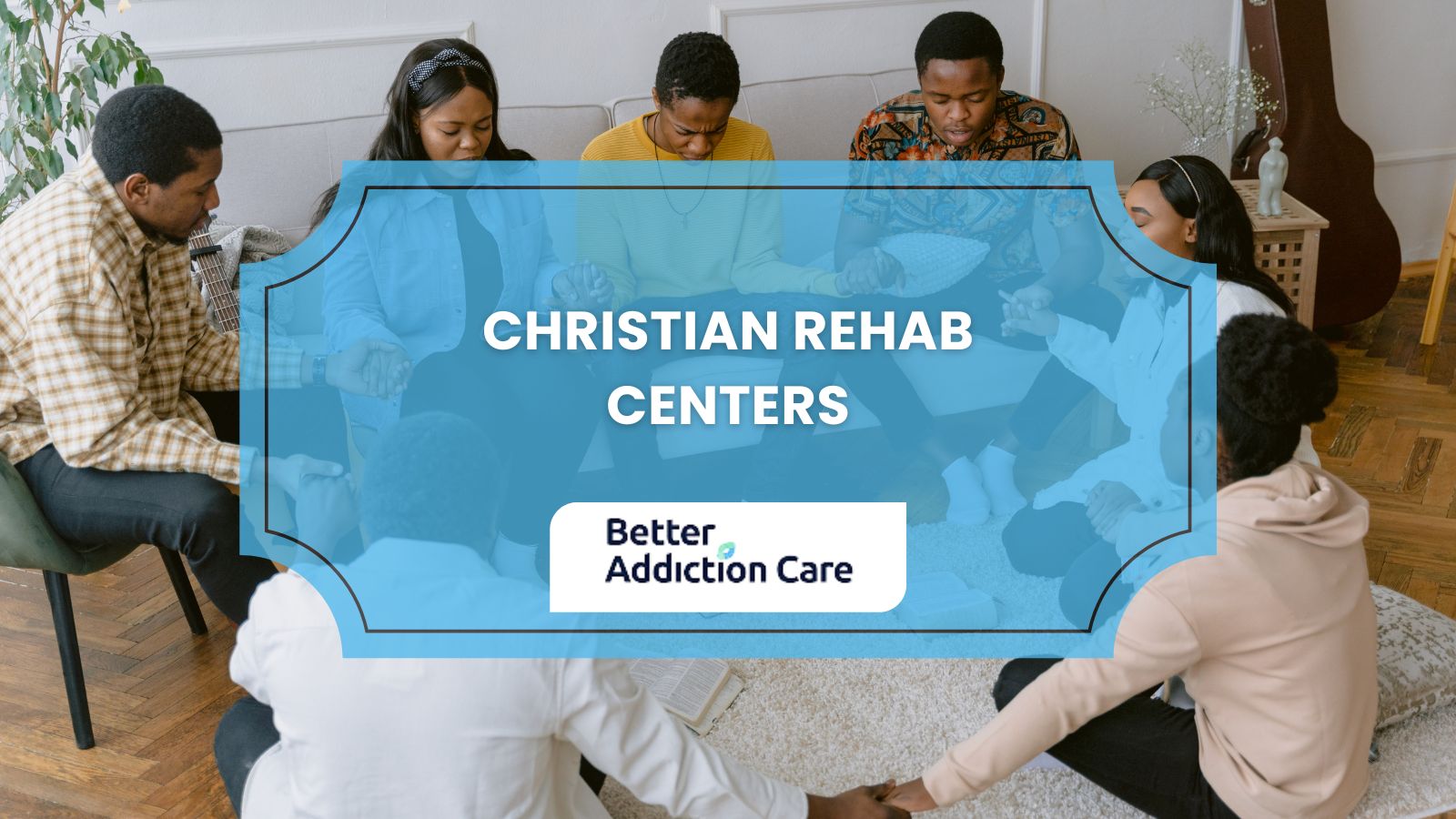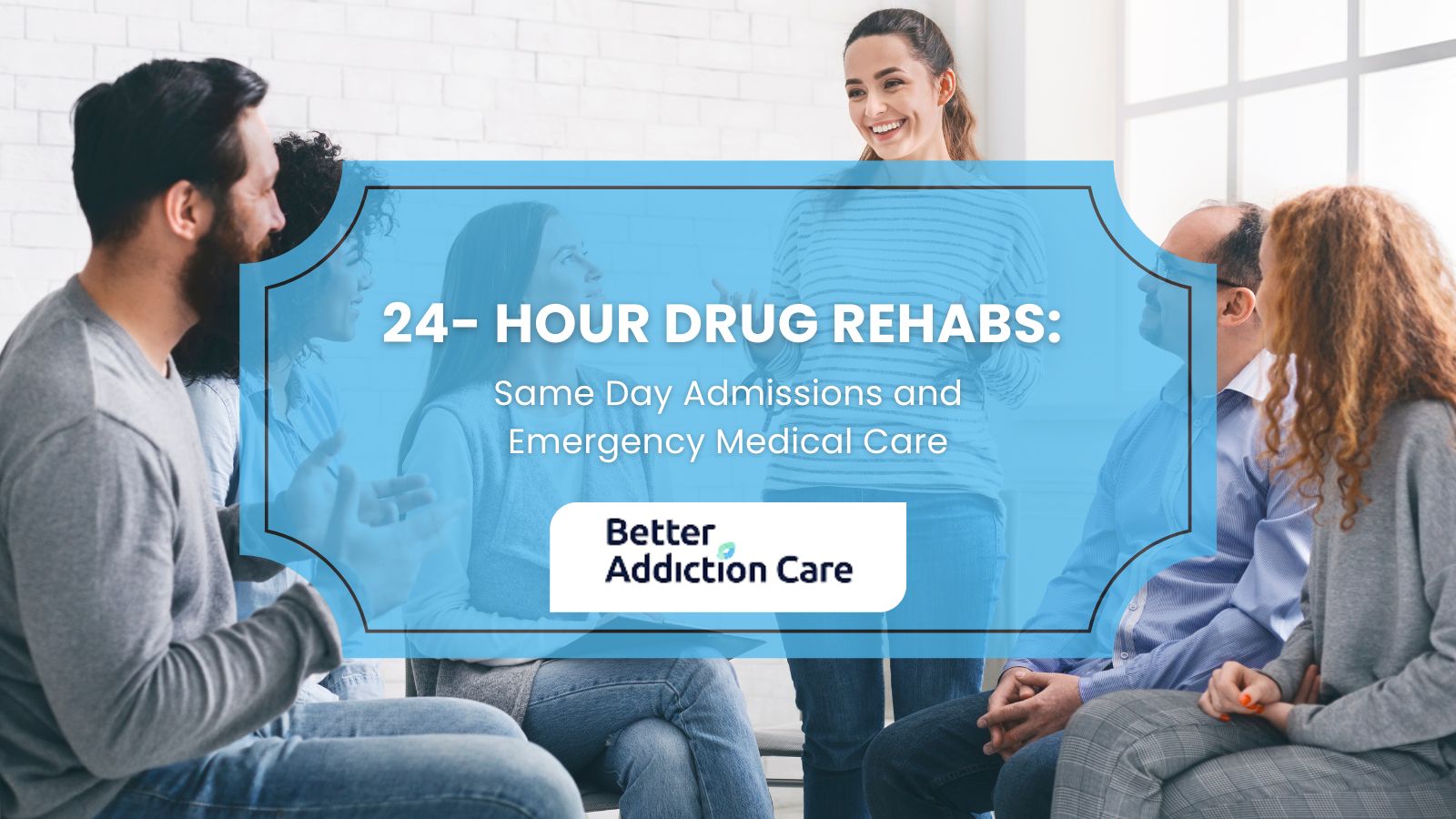Long-Term Rehab Centers
Long-term treatment centers offer extended residential care for recovery from substance abuse or mental health disorders. If you face severe addiction, chronic relapse, or co-occurring disorders, these centers provide the immersive support and structure you need for lasting recovery.
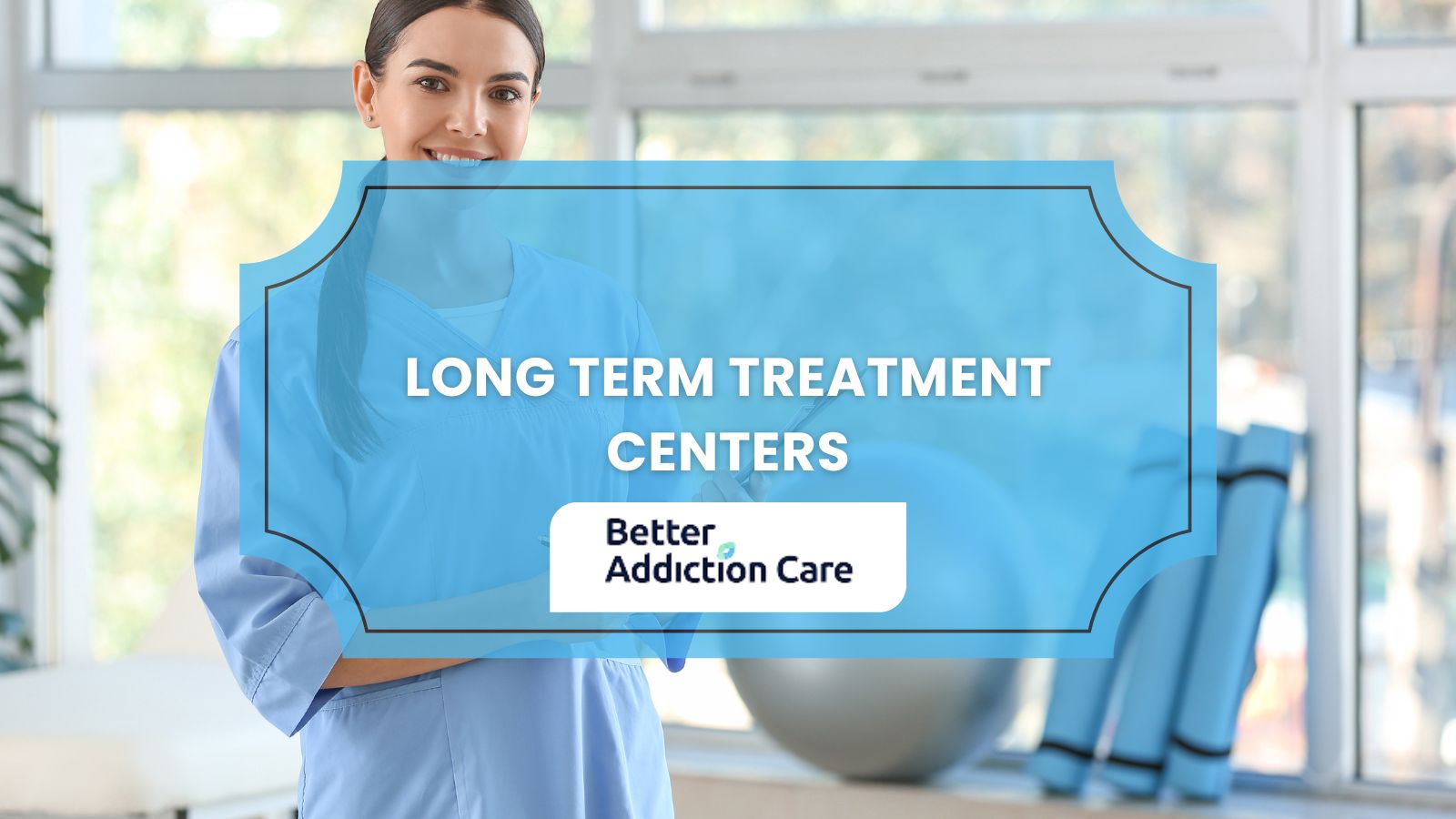
Long-term treatment centers for addiction offer supervised detoxification, neurological healing, in-depth therapy, coping skills, removal from triggers, healthy habits, co-occurring disorder treatment, support, life skills, and structured transition to independence.
According to Weiss, R. D.’s 2015 study, ‘Long-term outcomes from the National Drug Abuse Treatment Clinical Trials Network Prescription Opioid Addiction Treatment Study’, long-term treatment for prescription opioid dependence leads to significant improvement, with 31.7% abstinent from opioids and 29.4% on agonist therapy without dependence symptoms at Month 42.
What is Long-term Rehab Treatment for Addiction?
Long-term rehab treatment for addiction is an extended, structured program that lasts 90 days or more, designed to support sustained recovery through intensive therapy, medical supervision, and life skills development. It addresses the root causes of addiction and reinforces healthy behaviors through consistent care in a residential or therapeutic setting.
Who Should Look For Long-term Rehab Treatment Centers?
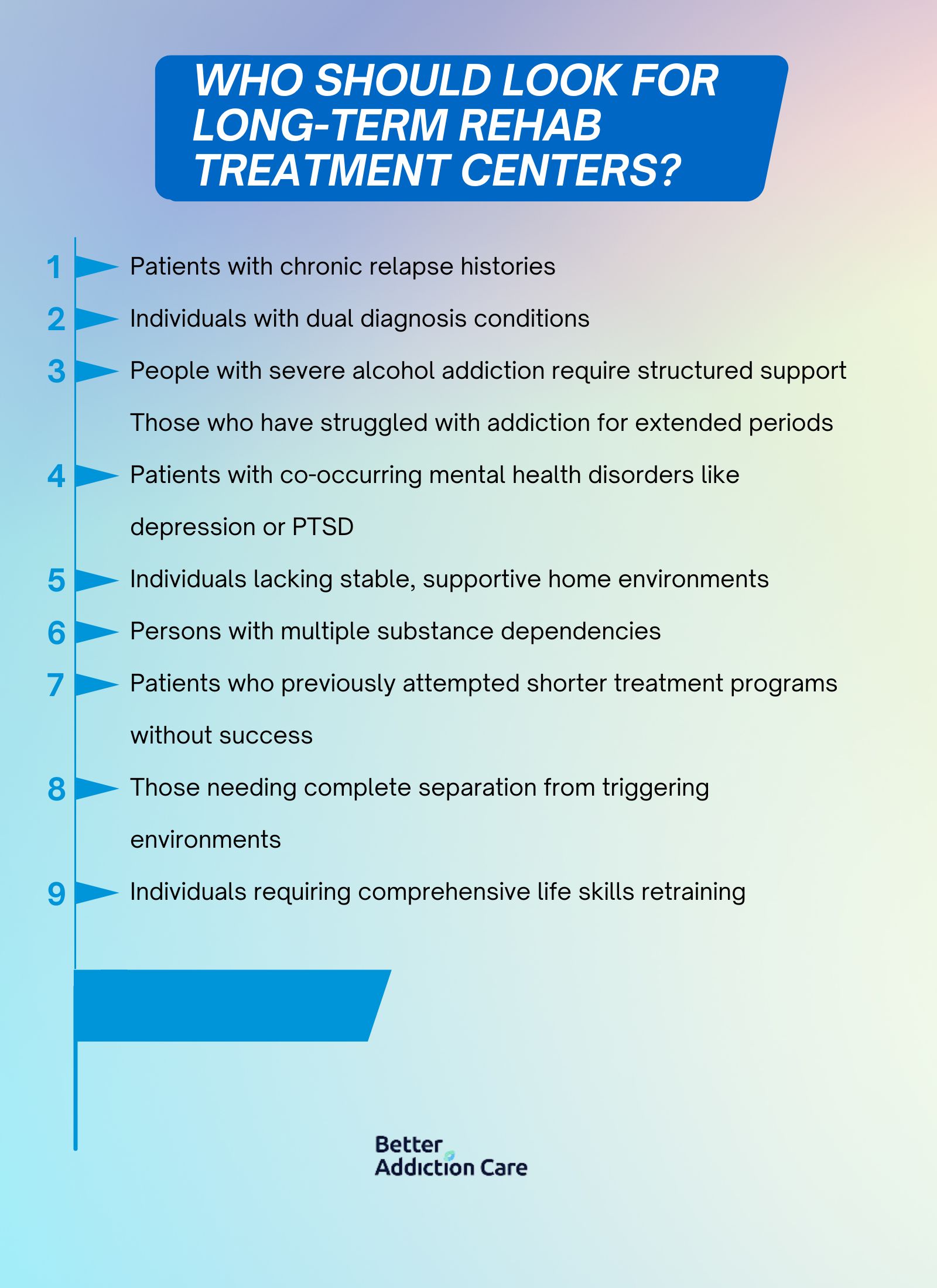
You should look for long-term rehab treatment centers if you or someone you know requires intensive, extended care to address severe addiction, chronic relapse patterns, or co-occurring mental health challenges. These programs are designed for individuals who need immersive support and structured environments to achieve lasting recovery.
Long-term rehabilitation candidates include:
-
Patients with chronic relapse histories
-
Individuals with dual diagnosis conditions
-
People with severe alcohol addiction require structured support
-
Those who have struggled with addiction for extended periods
-
Patients with co-occurring mental health disorders like depression or PTSD
-
Individuals lacking stable, supportive home environments
-
Persons with multiple substance dependencies
-
Patients who previously attempted shorter treatment programs without success
-
Those needing complete separation from triggering environments
-
Individuals requiring comprehensive life skills retraining
What Are The Benefits Of Long-term Treatment Centers For Drug And Alcohol Addiction?
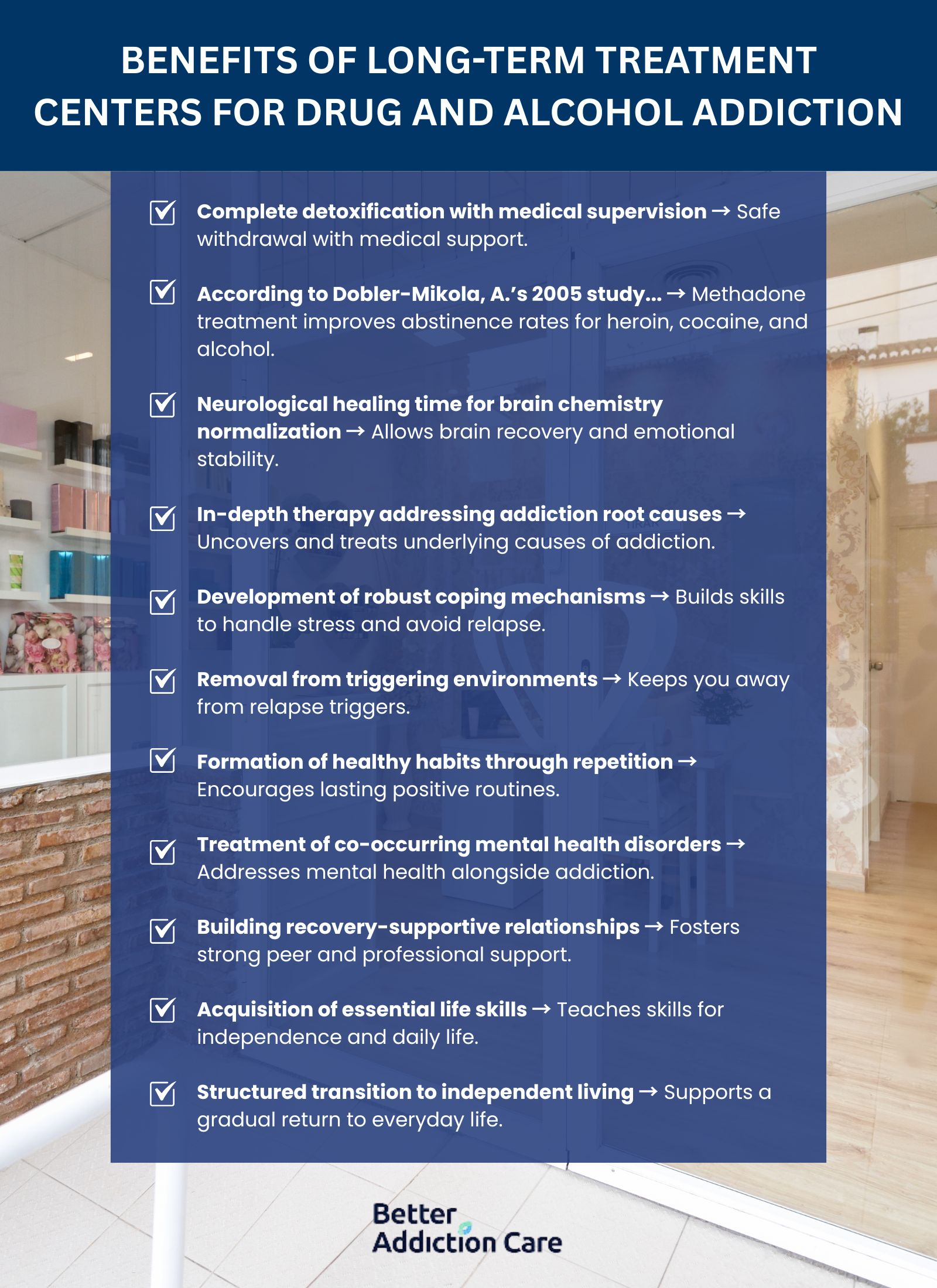
The benefits of long-term treatment centers for drug and alcohol addiction include complete detoxification, neurological healing, in-depth therapy, development of robust coping mechanisms, removal from triggering environments, formation of healthy habits, treatment of co-occurring mental health disorders, building recovery-supportive relationships, acquisition of essential life skills, and structured transition to independent living.
Here are the key benefits of long-term treatment centers for drug and alcohol addiction:
-
Complete detoxification with medical supervision: Long-term treatment centers offer a safe and controlled environment for individuals to undergo detoxification, supervised by medical professionals who address any complications that arise during the process.
According to Dobler-Mikola, A.’s 2005 study, ‘Patterns of heroin, cocaine, and alcohol abuse during long-term methadone maintenance treatment’, long-term methadone maintenance treatment benefits individuals by allowing 26% to achieve heroin abstinence, 39% to abstain from cocaine, and 19% from alcohol. -
Neurological healing time for brain chemistry normalization: Extended treatment programs give you the necessary time to restore balance to your brain chemistry, helping you regain control over your thoughts, emotions, and behaviors.
-
In-depth therapy addressing addiction root causes: Through long-term therapy, you explore the underlying causes of your addiction, develop a deeper understanding of yourself, and learn effective coping mechanisms to prevent relapse.
-
Development of robust coping mechanisms: Long-term treatment centers teach you various techniques to manage stress, anxiety, and other triggers, reducing your risk of relapse and promoting long-term sobriety.
-
Removal from triggering environments: Residential treatment programs provide you with a safe and supportive environment, removing you from the people, places, and things that trigger substance use, and allowing you to focus on your recovery.
-
Formation of healthy habits through repetition: You develop healthy habits like exercise, balanced eating, and stress management.
-
Treatment of co-occurring mental health disorders: Long-term treatment centers address your co-occurring mental health disorders, such as depression, anxiety, or trauma, providing a comprehensive approach to your recovery.
-
Building recovery-supportive relationships: You build strong, supportive relationships with peers and professionals through group therapy, support groups, and community involvement, helping you stay motivated and engaged in your recovery.
-
Acquisition of essential life skills: Long-term treatment programs teach you essential life skills, such as budgeting, time management, and communication, helping you become more independent and self-sufficient.
-
Structured transition to independent living: Long-term treatment centers provide you with a structured transition plan, helping you gradually return to independent living while maintaining the support and guidance you need to stay on track with your recovery.
What Are The Factors in Choosing the Length of Addiction Treatment?
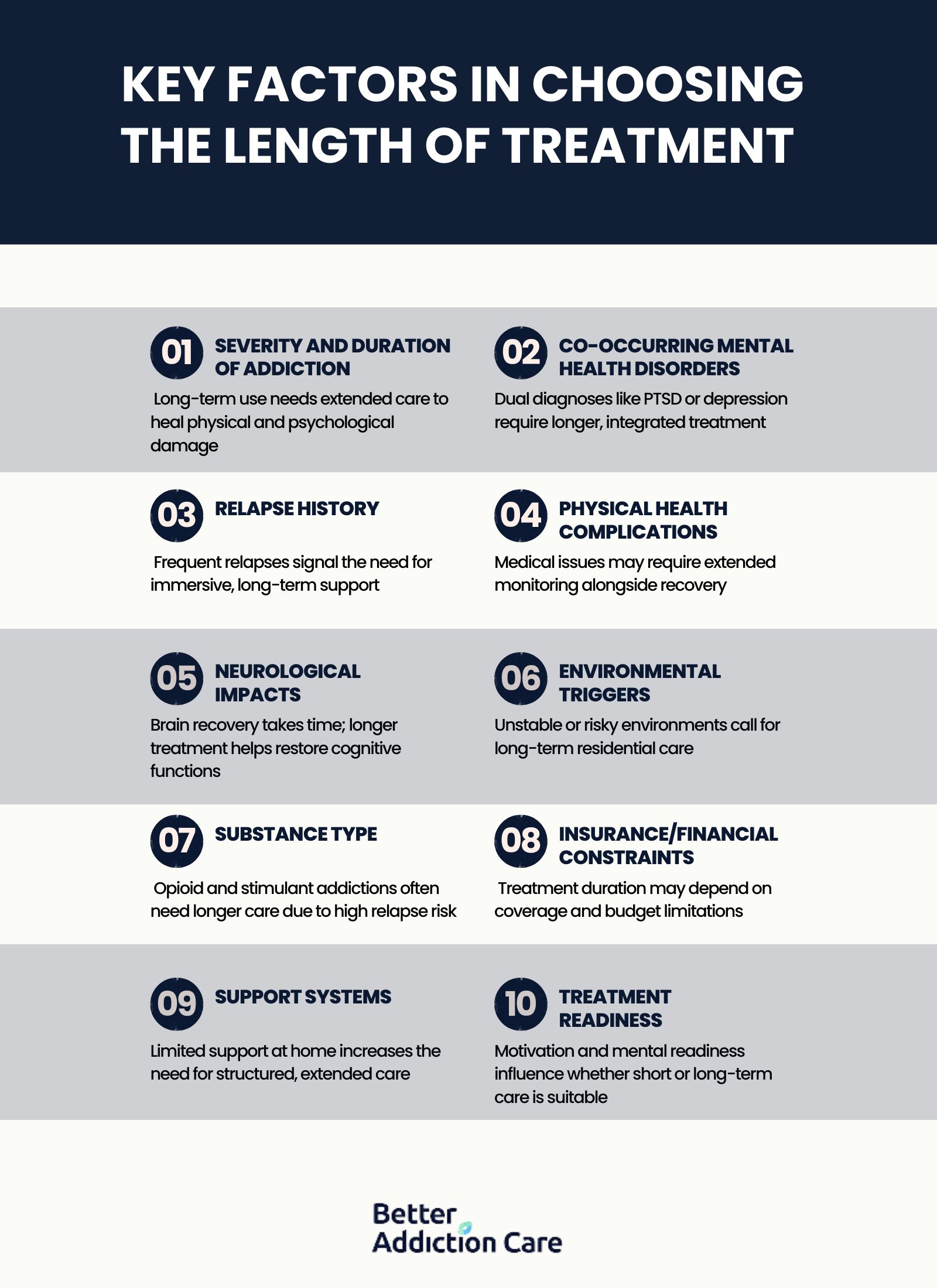
The factors in choosing the length of treatment include considerations such as the severity and duration of addiction, co-occurring mental health disorders, previous relapse history, and physical health complications, all of which shape the appropriate duration needed for effective recovery from addiction.
Here are the key factors in choosing the length of treatment:
-
Severity and duration of addiction: Long-standing substance use requires extended care to address deep-rooted behavioral and neurological patterns. When addiction has shaped your life over many years, prolonged treatment allows time to heal both the physical damage and the psychological habits that sustain dependency.
-
Co-occurring mental health disorders (e.g., PTSD, depression): Integrated treatment for dual diagnoses typically necessitates longer programs to ensure stability. Mental health conditions like PTSD or depression demand thorough, simultaneous care, making extended programs essential to address intertwined challenges without compromising recovery.
-
Relapse history: A history of repeated treatment failures or chronic relapse indicates you need immersive, long-term environments to break dependency cycles and build effective relapse-prevention strategies.
-
Physical health complications: Physical health complications mean you might need longer care for monitoring issues like liver damage or withdrawal risks alongside your addiction recovery.
-
Neurological impacts: Substance-induced cognitive impairments require time-intensive therapies to restore functioning. Healing the brain’s pathways from the effects of addiction is a gradual process; extended treatment prioritizes restoring critical skills like decision-making and emotional regulation.
-
Environmental triggers: Environmental triggers, such as unstable housing or high-risk surroundings, indicate that you benefit from long-term residential care. Long-term residential care provides a focused recovery setting that eliminates previous stressors and supports your healing process.
-
Substance type: If you're dealing with opioid or stimulant addictions, extended treatment is necessary due to high relapse rates, requiring specialized care to dismantle cravings and rewire behavioral responses.
-
Insurance/financial constraints: Coverage limits or out-of-pocket costs directly shape your treatment choices. Financial realities must be balanced with the level of care required, ensuring you access programs that align with both your budget and long-term healing needs.
-
Support systems: Weak family or social networks increase your reliance on structured care, making extended programs vital for fostering community and self-reliance without a reliable support system.
-
Treatment readiness: Your treatment readiness, influenced by motivation and cognitive capacity, determines your engagement with shorter or longer programs, with extended options allowing flexibility for your evolving recovery needs.
How Is Long-term Residential Treatment Better?
Long-term residential treatment is better because it provides a structured, immersive environment where individuals focus on recovery without external distractions. It offers comprehensive therapy, skill-building, and support over an extended period, fostering lasting behavioral changes and addressing underlying issues more effectively than shorter-term options.
According to Beaulieu, M.’s 2021 study, ‘A systematic review and meta-analysis of the efficacy of the long-term treatment and support of substance use disorders’, individuals who received planned long-term treatment for drug addiction had a 23.9% higher likelihood of achieving abstinence or moderate consumption compared to those who underwent shorter standard treatment.
Does Insurance Cover Long-term Treatment Center Costs?
Yes, insurance plans cover the costs of the long-term treatment center. Many health insurance plans, including those under the Affordable Care Act, offer coverage for long-term treatment, such as inpatient care, partial hospitalization, and outpatient therapy for substance abuse and mental health issues. The extent of coverage varies based on the insurance policy and the specific treatment center. It is crucial to verify insurance to understand the details and ensure you receive the care you need.
How to Find Local Drug Rehab Facilities for Long-Term Treatment?
To find local drug rehab facilities for long-term treatment, start by assessing your specific needs, such as the severity of addiction, co-occurring mental health conditions, and logistical factors like insurance coverage or location. Research accredited centers that specialize in extended care programs, ensuring they offer comprehensive services like detox, therapy, and aftercare planning. Online directories, community resources, and healthcare provider recommendations are valuable tools in identifying facilities with proven success rates.
For a streamlined search, use our local drug rehab facilities locator. This resource connects you to verified treatment centers tailored to your unique recovery journey.
Related Articles
Treatment Centers in Virginia





